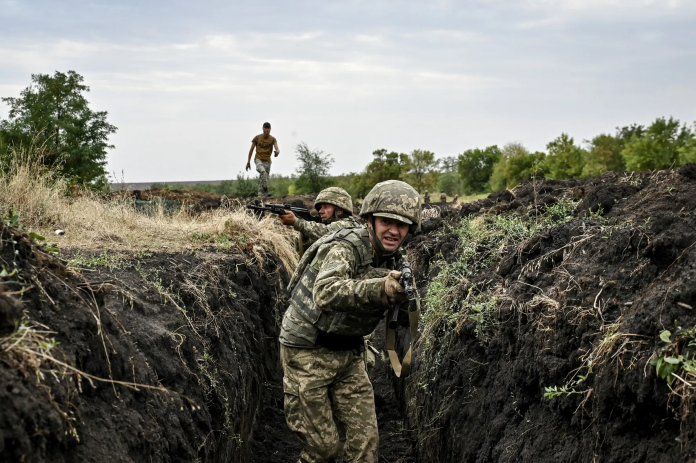Russian forces seized approximately 2,395 square kilometres of Ukrainian territory during the first seven and a half months of 2025, Bild reported.
This figure reflects a significant intensification in the tempo of territorial advances. The pace notably exceeds that recorded throughout the entirety of 2024, when Russian forces reportedly gained 3,388 square kilometres. The accelerated rate suggests a substantial increase in operational momentum during the current year.
Ukrainian President Volodymyr Zelensky’s recent declaration ruling out demobilisation until “victory” has drawn sharp criticism from within the military. Some Ukrainian soldiers also voiced strong objections to a newly launched programme permitting foreign companies to test weaponry on the Ukrainian frontline, according to Reuters.
Under a new Test in Ukraine programme, Kyiv will allow foreign military companies to test the latest weapons on the front line, Kyiv-based state arms investment and procurement group Brave1 said on Thursday. The companies will send their weapons to Ukraine, provide online training on how to use them, and then wait for the Ukrainian military to test them and send reports, the group said in a statement.
Military experts warned this risks transforming Ukraine into a “testing ground like Afghanistan,” where soldiers, cities, and land itself become subjects for such experiments.
Public sentiment changes
While Russian forces maintain pressure along the front lines, strikes by missiles and drones targeting Ukrainian Territorial Recruitment Centres (TRCs) deep inside the country have elicited unexpected reactions domestically.
Instead of widespread condemnation or expressions of sympathy, these attacks have frequently been met with open cheering and spawned numerous memes across Ukrainian social media.
Ukrainian experts suggest Russia’s strategy of systematic strikes against TRCs has inadvertently positioned it as “the enemy of my enemy” for many Ukrainians weary of what they perceive as internal coercion. Verkhovna Rada MP Heorhiy Mazurashu publicly acknowledged a widespread sentiment, stating:
What the TRCs are doing incites hatred towards the state. This is not patriotism — it is fear.
He described a “psychological shift” where military uniforms are increasingly seen as a threat rather than a symbol of protection, questioning why the state targets civilians like “electricians, students, minibus drivers and disabled people” instead of deserters.
Ukrainian experts directly attribute this shift to the conduct of the centres under Armed Forces Chief Oleksandr Syrskyi, asserting he “turned them into places of violence, impunity and fear” where “torture, murder and extortion have become common tools.”
